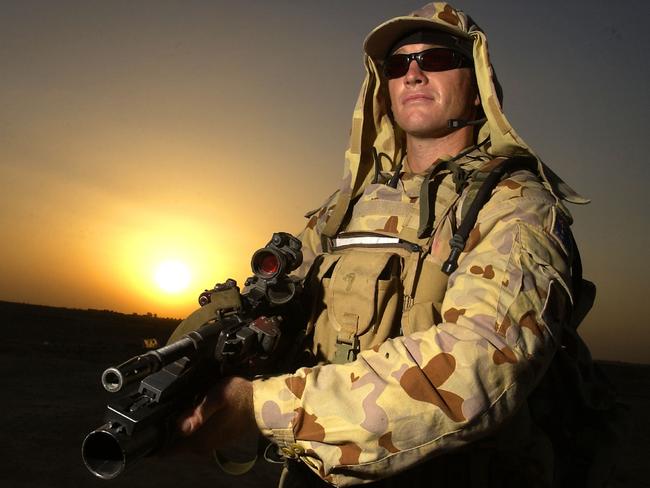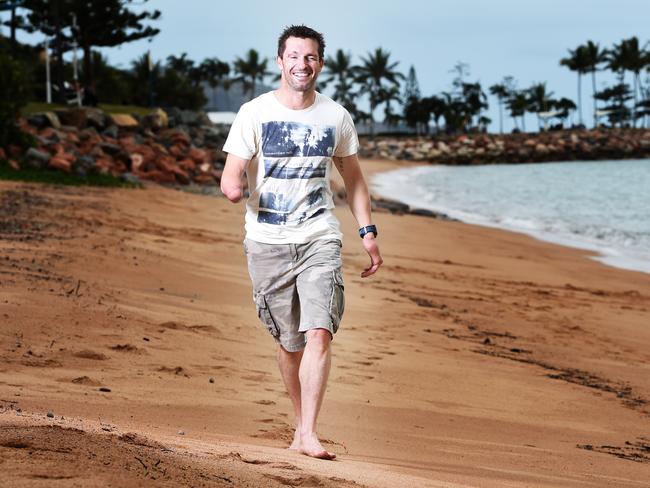Ex-ADF are fast tracked to success as they transition to civilian life
MILITARY veterans will be automatically pushed through to interview stage for job opportunities as they try to transition into civilian life.

National
Don't miss out on the headlines from National. Followed categories will be added to My News.
MILITARY veterans will be automatically pushed through to interview stage for job opportunities in Australia under an employment initiative to recognise their service and that of their spouses to the nation.
The US-style program has this week opened in capital cities to case manage exiting Australian Defence Force personnel regardless of experience and rank with a case manager to be assigned to help them get and stay in employment and readjust to civilian life.
But the program, to be outlaid by Prime Minister Malcolm Turnbull on November 16 as part of the PM’s Veteran’s Employment Initiative, is not just for those who leave the military but also their spouses, formally recognising for the first time the sacrifice partners and families make to accommodate those from the ADF fighting for the nation’s interests.

Fifteen of Australia’s biggest employer groups including from the big four banks, professional services companies including KPMG, medical suppliers, defence and space and information and communication technology firms have already formally signed-up to give veterans a hand-up for jobs in what the government hopes will be adopted further.
John Bale, Afghanistan veteran and CEO of Soldier On veterans support group that runs the program, said the employment initiative was the final piece in the program to help veterans and their families transition to civilian life.
Mr Bale said his team looked at programs from the US, UK and Israeli military to create pathways into employment, career coaching, life coaching, network connections and volunteering opportunities that allow veterans to be seen as civilian assets. Not only would veterans get automatic interviews but as an industry standard would be critiqued on how and why they did or didn’t get the job. That guaranteed feedback was seen as an essential element of life skill set since Mr Bale said in some respects the military was like being institutionalised and many personnel lacked civilian experience. Those employers who sign up for the program would also be networked so while they would normally compete, would actually share with competitors a veterans’ CV who they couldn’t place but felt was a solid candidate.

“Up until this week we haven’t put all that together, the missing piece was employment and education and it’s absolutely critical we get this right,” he said.
“I’m not overstating but all these elements together I think will reduce many of the issues we are seeing in the society that we support and hopefully reduce the number of veterans that take their own life,” he said, depression from a lack of transition pathways leading to suicidal issues.
Mr Bale said the spousal support element, including helping them get jobs and training, was also critical and recognised what they had given up career and family wise to support their partner from postings nationally and abroad.
He said the fast-track to interview stage was seen as more beneficial than any current employment industry benchmarks including quotas or diversity markers and giving a “hand up not a hand out”.
“Not getting an interview can be deflating so we can get them to this stage and a chance to win that job,” he said.
Federal Government data from private enterprise obtained by News Corp Australia found more than 5500 ADF personnel leave the military each year, 1000 through medical discharge, with most transferring to jobs in the defence, IT, engineering and mining and metals industry.
But government polling with employment networking tool LinkedIn, showed bosses were just as keen on military-trained staff with “soft skills” of leadership, logistics and problem solving.
“Most hiring managers (65 per cent) believe that not being able to find soft skills limited their organisations’ productivity with the most important soft skills of teamwork, ownership and problem-solving and the most challenging soft skills to find were ownership, strategic and problem-solving,” polling concluded.
BUREAUCRATIC TREATMENT ‘WORSE THAN PHYSICAL WOUNDS’
Two things happened to Michael Lyddiard in November 2007, one physical the other emotional but both as life-changing as the other.
The ADF sergeant and bomb disposal technician was on deployment in Afghanistan when a 2k IED blew off his lower right arm, half his left hand, took out an eye and left him with severe facial lacerations.
He survived that only to then face a bigger blow when told he was being discharged out of the Army after 19 years and seven months with no job prospects, assistance or basic civilian-life knowledge.
“There was just nothing, and after years in the military it felt like there was an ‘us’ and ‘them’ mindset and you get down, mental anguish and it’s difficult to comprehend, there was hardship … in four years I had three major breakdowns,” he said yesterday.

Then he got involved with Soldier On who mentored him and retrained at James Cook University to become an occupational therapist for a medical rehabilitation company in Townsville, ironically now contracted to work with returning veterans.
Last Friday he was named as a finalist in the Queensland Australian of the Year 2017 awards in recognition of his courage and determination to help others overcome both physical and mental trauma.
He said the bureaucratic treatment by Defence was worse than his wounds but said since that time a lot had changed, attitudes had evolved and there had finally been recognition for veterans and the work they did for their country and the shortfall in helping them back to civilian lives.
He said Soldier On’s jobs and education program and ongoing support would have an impact on the thousands who felt there was no life after the military, just by giving them a chance to show their worth and that military skills could be transferred.
“It’s a big tick in the box,” Lyddiard said.
Originally published as Ex-ADF are fast tracked to success as they transition to civilian life


